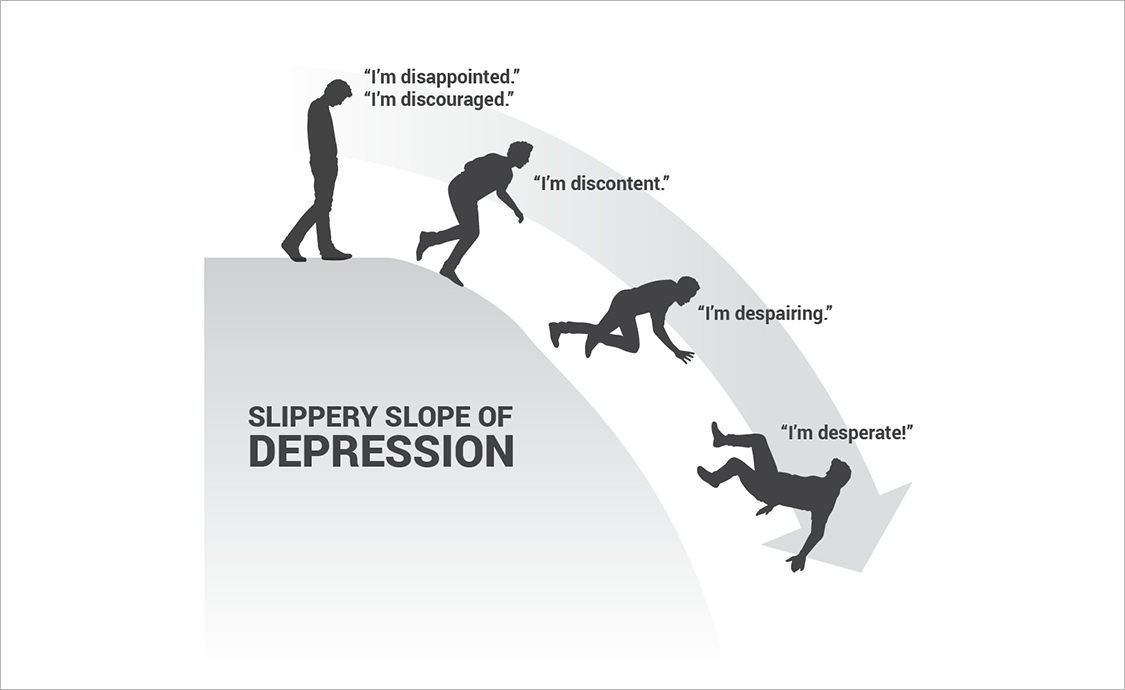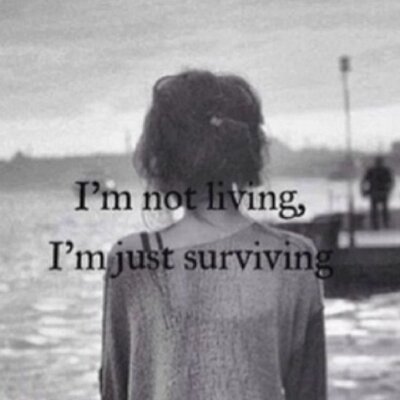
It is now clear that depression is a serious case that has led so many to commit suicide, The rate of depression will be low if only we are well informed on how to talk, treat a depressed friend, neighbour, colleague, or family.
Most people have pushed depressed people to their death unknowingly.
We ought to be armed with what to say or do when we are around people that have this mental condition. I heard a story of a boy of 18-yrs telling his brother how depressed he feels, but because the older brother is unaware of the severity of this condition he down-played it and the next day he saw that his brother had already hanged himself.
Depression is a sensitive situation sometimes we have the best of intentions, we want to talk a depressed person out of it but these tiny bits of advice may hurt someone with depression more than they heal.
1.Don't tell them to shake it off
Why it's harmful: When you tell someone to just shake off
their depression, you trivialize their condition and deny their pain, according
to Debbie Plotnick, vice president for mental health and systems advocacy at
Mental Health America. For people with depression, "cheering up" is
not a simple task, and it's important to recognize that they probably wish they
could, too. These are the hidden signs that you could be depressed.
What to say instead: "I'm sorry you're not feeling
well. Is there anything I can do to help?"
2. Don't downplay their condition
Why it's harmful: Telling someone that the pain they're
feeling is "all in their head" diminishes the fact that depression is
a serious health condition, and reduces it to something that can be fixed just
by changing their thinking habits. "If someone is feeling unwell in some
way, it is within their person, not just their head," Plotnick explains.
Here's what psychologists wish you knew about depression.
What to say instead: "I will try my best to
understand."
3. Don't be dismissive
Why it's harmful: People with depression are aware that life
isn't fair, says Theresa Nguyen, vice president of Policy and Programs at
Mental Health America. Reminding them of this fact doesn't help them cope with
their illness. Instead, try some of these psychologist-recommended ideas to
help your loved one get through their difficult time.
What to say instead: "I can see that you're struggling,
and I'm proud of you for pushing through this."
4. Don't make comparisons
Why it's harmful: As true as this might be, it doesn't
change the fact that the person you're talking to is still going through an
emotionally draining time. Telling someone with depression that some other
people have it worse will only make them feel ashamed of their feelings,
Plotnick says.
What to say instead: "What you're going through is
real, and you shouldn't feel bad about it."
5. Don't offer false cheer
Why it's harmful: What might feel like a beautiful day to
you could be a much different picture for someone with depression, who may have
difficulty seeing the same joy you recognize in everyday life. Implying that
the person should feel happy ignores their condition and may make them feel
guilty for their depression, Plotnick says.
What to say instead: "Can I come and keep you company
today?"
5. Don't give pat advice
Why it's harmful: It's true that isolating yourself can
increase your risk of feeling depressed, but everyone has their own way of
dealing with their depression, and what works for some may not be helpful for
others. Plotnick says it's also generally best to avoid "should"
statements; you might feel like you're offering a helpful solution, telling
people with depression what they need to do in order to feel better isn't
always productive.
What to say instead: "Would you like to go for a walk
with me?"

6. Don't tell them how to cope
Why it's harmful: Depression is a serious health issue, and
simply telling someone to pretend it doesn't exist isn't going to cure them of their
condition. According to Ken Duckworth, MD, medical director for the National
Alliance on Mental Health, telling someone to "get over" their
depression lacks compassion and will likely make the person feel misunderstood.
What to say instead: "How can I support you during this
difficult time?"
7. Don't talk about how they look or act
Why it's harmful: As is the case with any medical condition,
there is no one specific way to look depressed. Not everyone will be a sobbing
mess or unable to get out of bed in the morning. "People who are depressed
spend a lot of time trying not to look depressed," Nguyen says. "It
takes a long time for you to get to the point where you stop showering."
What to say instead: "Tell me more about what's going
on. Help me understand."
8. Don't be judgemental
Why it's harmful: Plotnick says this is one of the most
judgmental things you could say to someone battling depression. Their symptoms
may not be visible to you on the outside, but that doesn't mean the struggle
they're facing internally isn't real. Try understanding the seriousness of their
condition, and instead ask how you can support them.
What to do instead: Offer to bring them some soup or a hot
dish for dinner, as you would do for a friend dealing with any other health
condition.
9.Don't talk about "bad days"
Why it's harmful: It's true—everyone does have bad days.
However, that doesn't mean you need to point it out to someone with depression,
who may be struggling on a day-to-day basis. This statement reduces their
serious health condition to a "bad day" and implies that it's
something they'll get over quickly and easily, Plotnick says. If you're
wondering whether you have depression or just everyday sadness, here's how to
tell the difference.
What to say instead: "I'm sorry that you're having a
bad day. I'd like to help."
10.Don't talk about smiling or happiness
Why it's harmful: For someone with depression, finding energy
to smile when they're hurting in the inside can be exhausting and damaging.
They may be going through some difficult things that you are unaware of, so
it's best to communicate with them in the least assuming way possible.
What to say instead: "Your feelings are valid."
11. Don't downplay the severity
Why it's harmful: Statements like this play down the
severity of a depressed person's condition and might make them feel guilty for
something they can't control. "When I hear this statement, it diminishes
the fact that depression is a real problem and puts a personal blame and a
negative spin on what already feels awful," Nguyen says.
What to say instead: "What can I do to help you feel
better?"
12. Don't make it about you
Why it's harmful: Blaming someone with depression for making
you sad can worsen their condition by making them feel even more ashamed and
humiliated than they already do, Dr. Duckworth says. Instead, you should show
love and support the person to help them get back to the state they'd like to
be in. Here's how to help a depressed spouse—and potentially save your
marriage.
What to say instead: "I'm here for you."
13. Don't talk about how great their life is
Why it's harmful: As Plotnick explains, depression is not
simply the opposite of happiness, and it doesn't matter what you do or do not
have. You could have all the money, friends, and career opportunities in the
world, but that doesn't wipe away a mental illness. This factor can predict
whether depression will return.
What to say instead: "I understand that you are
hurting. I have your back."
SOMETIMES ALL THEY NEED IS FOR YOU TO JUST GIVE THEM A HUG or JUST HOLD THEIR HAND.
No comments:
Post a Comment